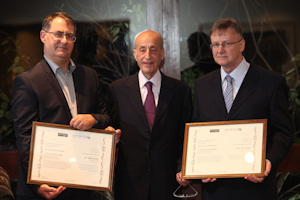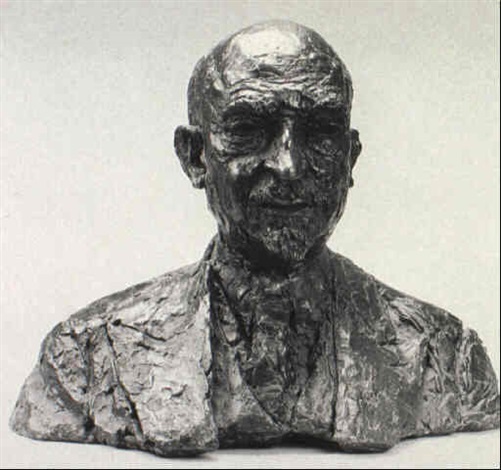Manchester students demand info on Israel links

Students belonging to the University of Manchester take part in a BDS campaign
Manchester University must reveal its relations with Israeli institutions
By MEMO
August 29, 2017
A British university has been accused of breaching the Freedom of Information Act (FOIA) by refusing to share details concerning its relation with Israeli institutions.
The body regulating data protection in the UK, the Information Commissioner’s Office (ICO) found the University of Manchester (UoM) in violation of the government act issued in 2000 by not disclosing information requested by a student activist over its relations with controversial Israeli institutions.
The complaint against UoM was made by one of its students who had tried unsuccessfully to obtain details about the nature of the university’s relation with Israeli organisations. In its decision seen by MEMO, ICO instructed Manchester University to provide a response to the request within 35 days, in accordance with its obligations under the FOIA.
ICO’s sharp criticism of the University comes on the back of a long standoff between UoM and pro-Palestinian student activists. In March, UoM sparked anger by deciding to discipline students supporting the BDS campaign. The University claimed that the students were punished for “trespassing on a roof during Israeli Apartheid Week” but the students said their protest was meant to put pressure on UoM to “divest from firms that abet the apartheid regime of Israel”.
The students had requested more transparency from the university over its dealing with Israeli organisations. Complainant British-Palestinian student Huda Ammori told MEMO that her suspicion was raised in 2013 when she said she noticed Technion, a leader in the field of research and development within the Israeli arms trade, advertised “proudly” on the University’s website.
Ammori said that she was equally surprised by the University’s decision to honour the Zionist leader Chaim Weizmann. She later discovered that the University has a shrine of Israel’s first President, Weizmann, in its chemistry building. Describing it as a “mockery of the suffering of the Palestinian people, who suffer under the regime he plotted”. * See in NOTES below on Chaim Weizmann and BDS aims
Ammori confirmed that the University also partnered with all three institutions he founded: Technion, Weizmann Institute and Hebrew University. Techinon was founded before 1948 to develop the Zionist regime, and remains a leader in the field of arms research for the Israeli occupation forces.
MEMO learnt that several FOI requests were made by students involved in the BDS campaign. Manchester University confirmed this saying: “The Freedom of Information requests are both being processed in the normal way, and would be responded to in line with [our] obligations.”
ICO’s decision suggests that the University has failed in its promise to fulfil its obligations under FOIA and instead decided to adopt an uncompromising position against students demanding information about the extent of its relation with Israeli organisations.
The decision by the ICO is seen as an important step in the campaign against unethical university investment. Activists are hoping that the ICO will take the University to the high court for contempt if it fails to answer to the students’ requests. “It is unacceptable,” said Huda, “that they [UoM] are withholding such information, especially from paying students at the university.”
The UoM told MEMO: “We can confirm that we have received a letter from the ICO and we are considering our response.”
How the work of Weizmann is inspiring scientists today thanks to Lord Alliance
University of Manchester
March 26, 2015
Exactly 100 years after the first President of Israel, Chaim Weizmann, made his vital discovery about acetone at The University of Manchester, the institution is celebrating his legacy through new scientific discoveries made in collaboration with the Weizmann Institute of Science in Israel thanks to the generosity of Lord Alliance.

Professor Steffen Jung, Lord Alliance and Professor Werner Muller
In 1915, in the university’s Bio-Chemistry labs, Weizmann discovered a more sustainable way of making acetone which was required for the manufacture of the explosive powder cordite. His work attracted the attention of the British Government and eventually six distilleries were requisitioned for the mass production of cordite. As a result, shell production rose from 500,000 in the first five months of the First World War to 16.4 million in 1915, demonstrating the significant impact Weizmann had on the war effort.Today, the scientific link between The University of Manchester and the Weizmann Institute of Science in Israel is stronger than ever with eight current partnerships in the area of Life Sciences which are yielding significant research. Funding is also now in place for seven further partnerships thanks to the generous support of the Alliance Family Foundation.
The fact that one of the UK’s top universities is working in partnership with one of Israel’s pioneering scientific institutes is significant according to Britain’s Ambassador to Israel Matthew Gould.
He says: “The partnership being built between Weizmann and Manchester is about the past, the present and the future. It is about the past, because it is only right to strengthen the link between the institute that bears Chaim Weizmann’s name and the university where he worked. It is about the present, because such collaboration is the best answer to those calling for boycotts of Israel and the future because I can think of no better model for relations between Israel and Britain than our world-leading scientists working together for the benefit of humanity.”
On 24 March a two day symposium was held at the Weizmann Institute, celebrating the scientific discoveries already made through the Lord Alliance Get Connected Grants and encouraging additional partnerships.
During this symposium the Lord Alliance Prize of £100,000 was awarded to one of the current partnerships, that of Professors Werner Muller (UoM) and Steffen Jung (WIS). Their work has shed light on how the cells in our gut respond to foreign parasites like worms and how these cells may trigger diseases such as Inflammatory Bowel Disease (IBD). Some of the other scientific discoveries that have been made possible through the Lord Alliance Get Connected grants impact on neural conditions such as Alzheimer’s disease, food security, wound healing and cancer.
Lord Alliance says: “The University of Manchester and the Weizmann Institute are both so close to my heart. To have the opportunity to bring the very best scientists together and see where their collaboration can lead has been a wonderful opportunity. I am truly delighted to see the results the Get Connected programme has had so far and am very much looking forward to more far-reaching scientific partnerships being created at the Symposium in Israel.”
Professor Martin Humphries, Dean of the Faculty of Life Sciences helped establish the connections between Manchester and the Weizmann Institute:
“Both the University of Manchester and the Weizmann Institute of Science have an esteemed heritage, exemplified by many highly impactful contributions to knowledge. Both our heritages interact at multiple points, but none more significant than the work of Chaim Weizmann while he was in Manchester. In establishing the concept of the Get Connected scheme, Benny Geiger and I aimed to build on this historical link and provide a means for the excellent scientists in both institutions to forge new interactions. The Get Connected programme is a shining example of what can be achieved when such researchers are given the freedom and resources to join forces with other like-minded teams. Put simply, what is achieved is progress at an accelerated rate.”
Professor Benny Geiger, Dean of the Faculty of Biology at the Weizmann Institute of Science adds:
“The extraordinary increase in the complexity and diversity of modern science, leads to an increasing need for multi-disciplinary teamwork based on scientific collaboration between those with complementary expertise. The Manchester-Weizmann Get Connected programme is an excellent example of a goal-oriented and synergy-driven collaboration, carried out in a highly friendly and warm atmosphere. On top of these considerations there is also the historical element of the partnerships manifested in the vision of Chaim Weizmann. One of his statements referred specifically to the role of science in shaping the future of the state of Israel, and is still very relevant today: “I feel sure that science will bring to this land both peace and a renewal of its youth, creating here the springs of a new spiritual and material life… I speak of science for its own sake and applied science.”
NOTES AND LINKS
Jacob Epstein’s bust of Chaim Weizmann. Two of the original bronzes are at Tate Britain in London and the Weizmann House museum in Rehovot, Israel.
The Weizmann Institute of Science is at Rehovot Israel;
The Weizmann Institute Foundation is at 9 Hampstead Gate, 1a Frognal, London NW3 6ALA few points about Weizmann, scientist, zionist, president
While still living in Manchester, Weizmann and fellow Zionists did support the transfer of Arabs from Palestine. As Palestinian nationalism only became a force after the creation of Israel in the 1920s it seemed feasible to Weizmann and other Zionists that Arabs in Palestine could be transferred to TransJordan or the fertile land between the Tigris and Euphrates in Mesopotamia (Iraq) as Turkey and Greece had just had a transfer of populations.
During the 30s and WW2 Weizmann was enraged by the apathy of European Jews. He thought they should put all their efforts in getting to Palestine, their needs, presumably, being greater than that of the indigenous Palestinians.
The 1947 UN Partition Plan [resolution 181], which allotted Palestine more land than it got after the 1947-48 war, was accepted by Weizmann but rejected by the Arab leaders who were acting on behalf of the Arabs who became Palestinians.
Chaim Weizmann died in 1952 after three years living in Israel.
The target of the BDS movement is the Occupation of Palestinian land, and consequent denial of Palestinian rights, following Israel’s victory in the 1967 six-day war, fifteen years after Weizmann’s death.
The aims of the BDS movement
1
Ending its occupation and colonization of all Arab lands and dismantling the Wall
International law recognises the West Bank including East Jerusalem, Gaza and the Syrian Golan Heights as occupied by Israel. As part of its military occupation, Israel steals land and forces Palestinians into ghettos, surrounded by checkpoints, settlements and watchtowers and an illegal apartheid Wall. Israel has imposed a medieval siege on Gaza , turning it into the largest open air prison in the world. Israel also regularly carries out large-scale assaults on Gaza that are widely condemned as constituting war crimes and crimes against humanity.
2
Recognizing the fundamental rights of the Arab-Palestinian citizens of Israel to full equality
One-fifth of Israel’s citizens are Palestinians who remained inside the armistice lines after 1948. They are subjected to a system of racial discrimination enshrined in more than 50 laws that impact every aspect of their lives. The Israeli government continues to forcibly displace Palestinian communities in Israel from their land. Israeli leaders routinely and openly incite racial violence against them.
3
Respecting, protecting and promoting the rights of Palestinian refugees to return to their homes and properties as stipulated in UN Resolution 194
Since its violent establishment in 1948 through the ethnic cleansing of more than half of the indigenous people of Palestine, Israel has set out to control as much land and uproot as many Palestinians as it can. As a result of this systematic forced displacement, there are now more than 7.25 million Palestinian refugees. They are denied their right to return to their homes simply because they are not Jewish.

